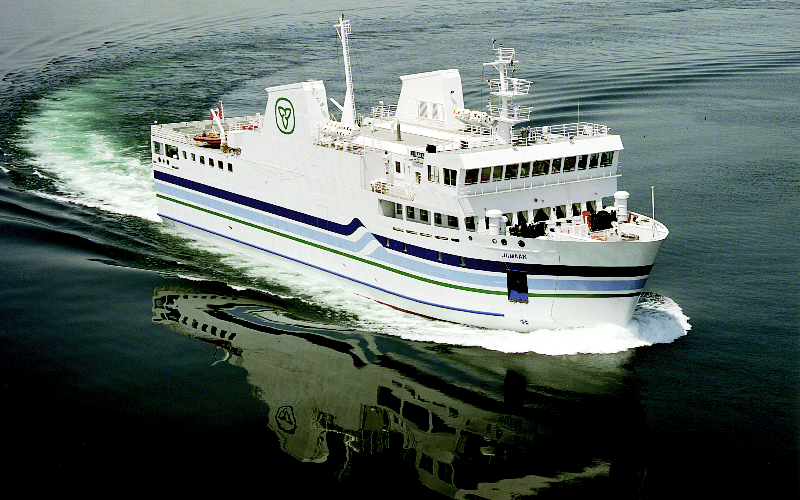The following is the text of a news release from the Transportation Safety Board of Canada:
(GATINEAU, Quebec) (March 10) — In its investigation report into the 2012 grounding of the passenger and vehicle ferry Jiimaan in Kingsville, Ontario, released today, the Transportation Safety Board of Canada (TSB) identified issues with the coordination of safety-critical activities in the port, the company's safety management system and passenger emergency preparedness, and with Transport Canada's (TC) oversight of recent regulatory amendments related to passenger safety.
On Oct. 11, 2012, Jiimaan was traveling from Pelee Island to Kingsville, Ontario with 18 passengers and 16 crew aboard. The crew planned to sail parallel to and east of the charted channel leading to Kingsville Harbour to avoid an obstruction in the channel marked by a buoy. They had intended to sail very close to the buoy, alter to port and then make a sharp turn to starboard to dock the vessel; however, winds pushed the vessel to starboard, further from the buoy, and the vessel ran aground 130 metres from the Kingsville Harbour entrance. The Canadian Coast Guard was dispatched to assist the Jiimaan, but an evacuation could not be safely carried out due to weather. The following day, the Jiimaan was refloated and escorted to Leamington, where the passengers were disembarked. There were no injuries, no pollution and no damage to the vessel.
The investigation found that the company’s safety management system (SMS) did not include a risk assessment process. As such, the risks associated with deviating from the charted channel to avoid the obstruction were not adequately identified and mitigated. It also found that there was a lack of coordination between the organizations involved in safety-related port activities, specifically with regards to communicating information about the buoy’s position and the extent of the channel obstruction due to silting with those responsible for maintaining charts and aids to navigation.
In addition, investigators identified deficiencies with passenger emergency preparedness in this occurrence. TC enacted new regulations in 2010 requiring vessels to have procedures in place to account for all passengers during an emergency and to conduct realistic emergency drills. The Jiimaan’s emergency procedures did not have the measures required by the new regulations.
The investigation also found that TC inspectors are not required to assess the passenger emergency preparedness procedures, nor are there any guidelines published to help the industry and inspectors interpret and comply with the new regulations. Because of this, the board is concerned that the potential safety benefits of the new regulations may be negated.
Since the occurrence, the TSB issued a safety advisory letter to the Department of Fisheries and Oceans regarding the accuracy of the chart for the Port of Kingsville. It also issued a safety advisory letter to the Jiimaan’s operator concerning the implementation of passenger safety procedures and drills aboard its vessels. The vessel’s operator has since implemented improved passenger emergency procedures, new water level monitoring procedures and improved navigation procedures.

